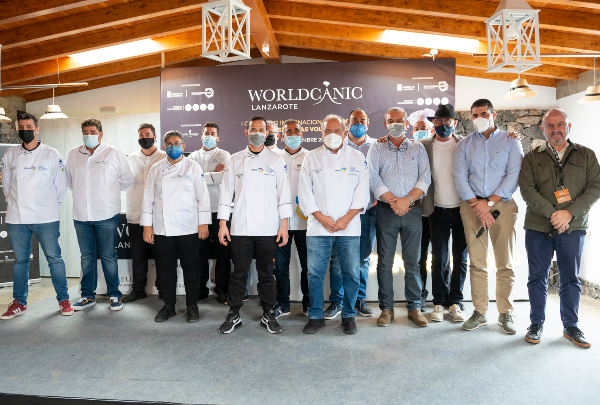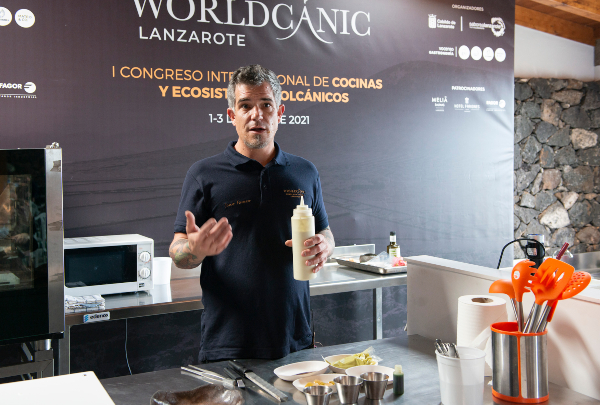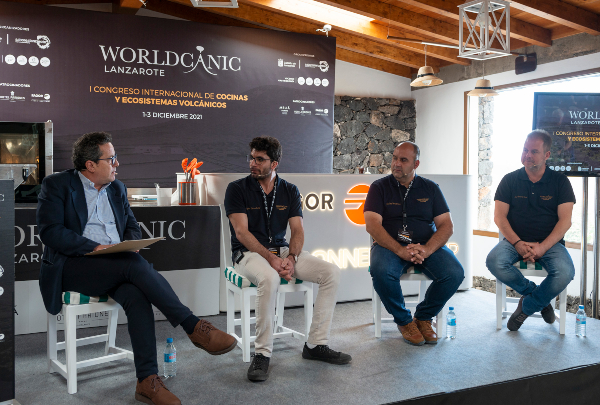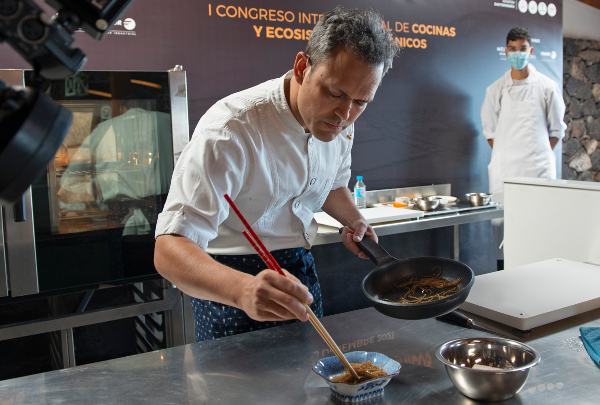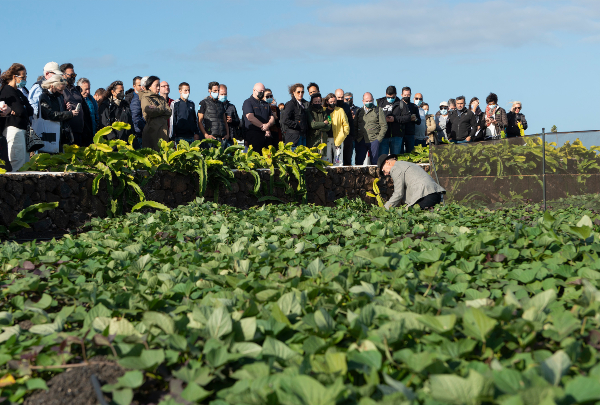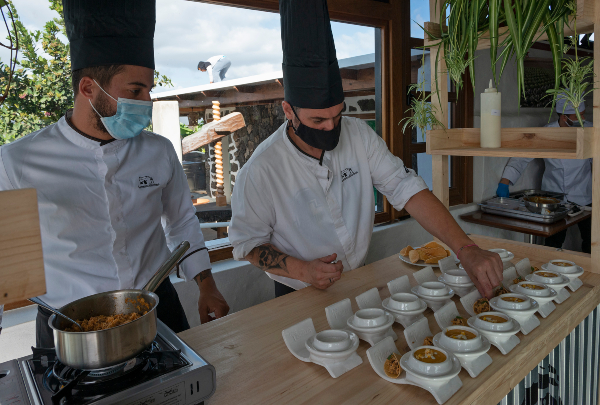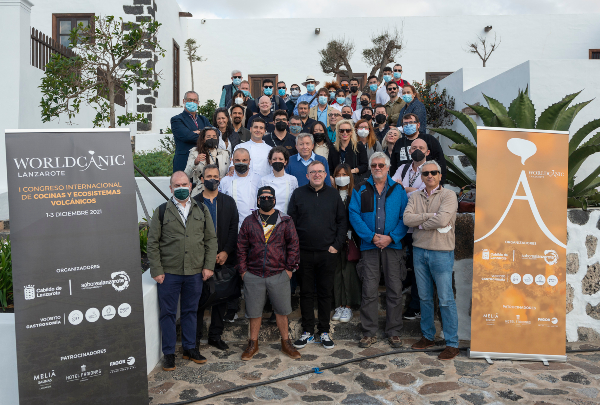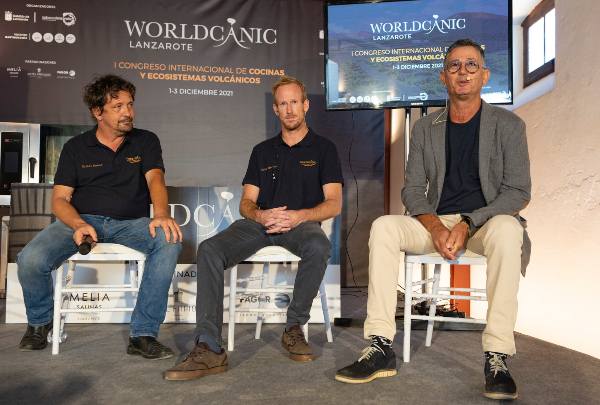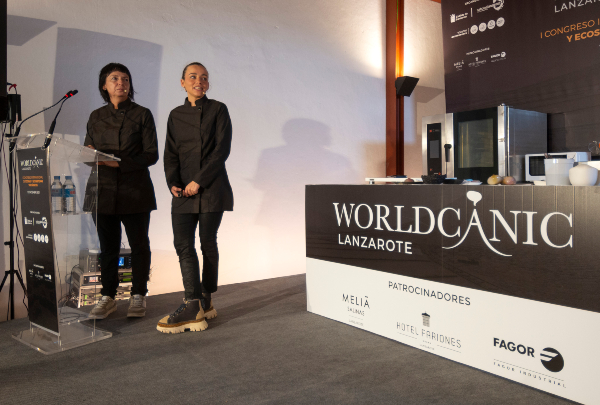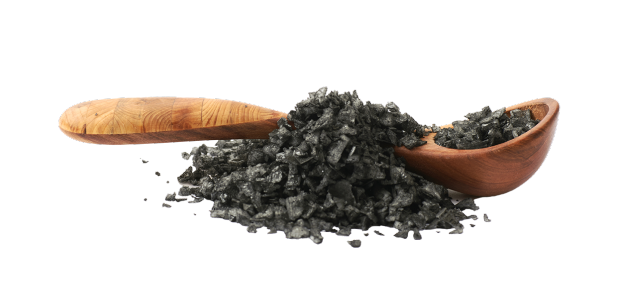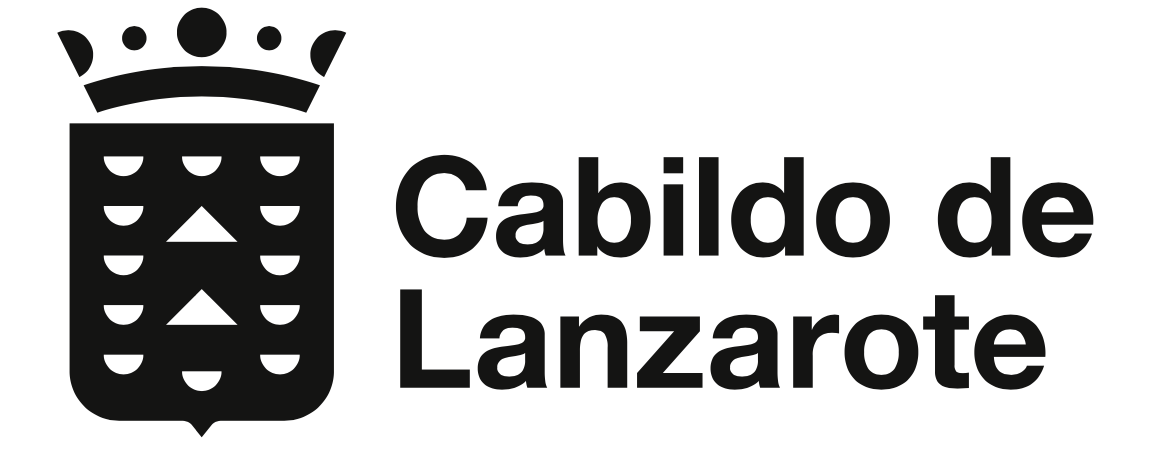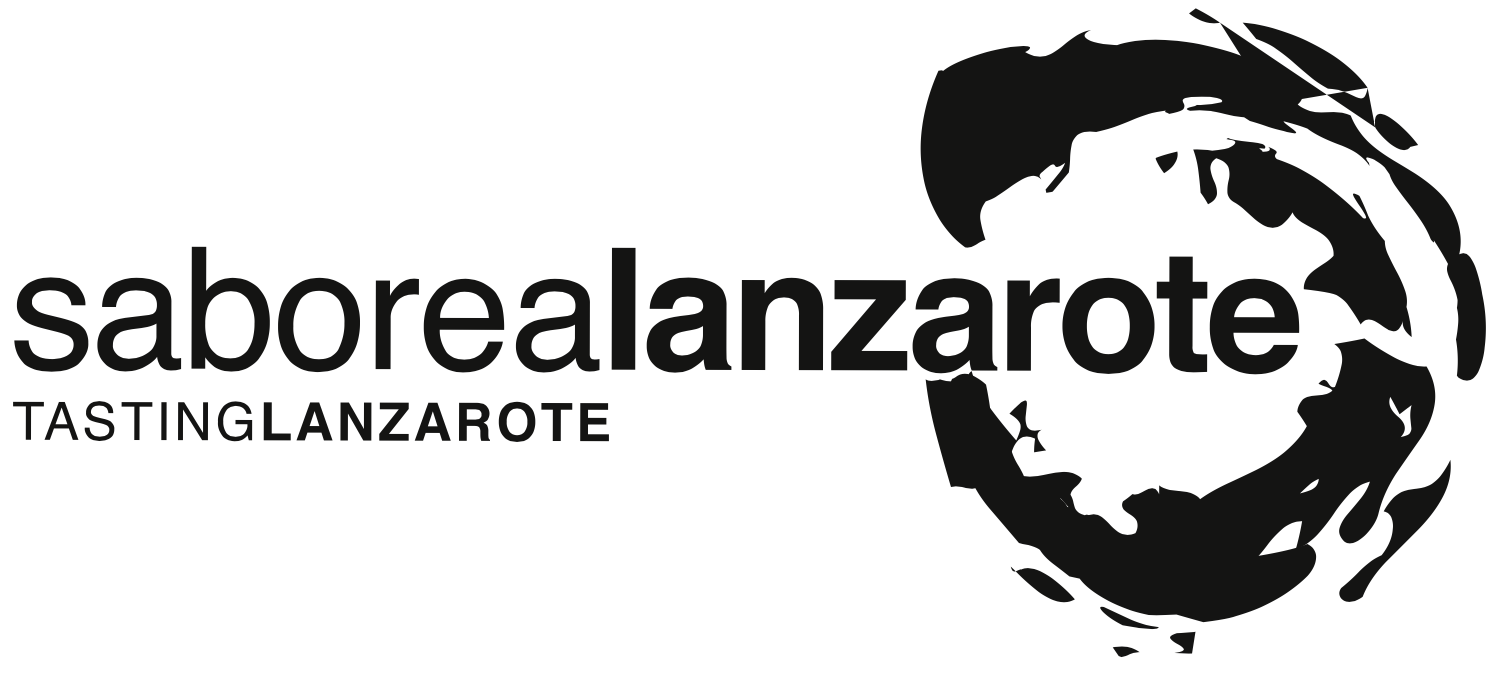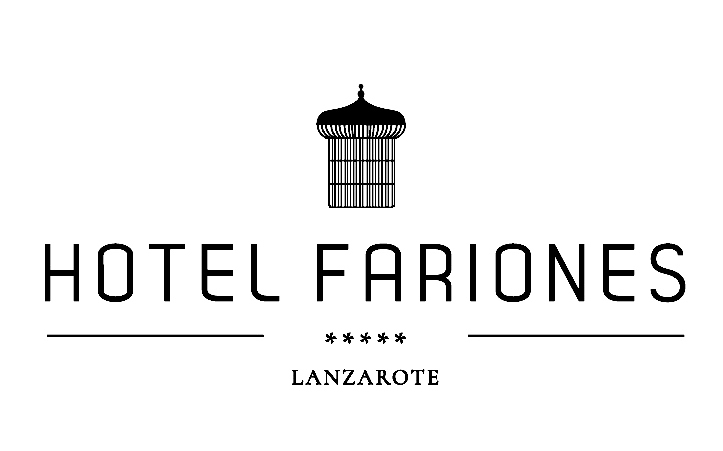News
Volcanic cheese seeks its place in the market
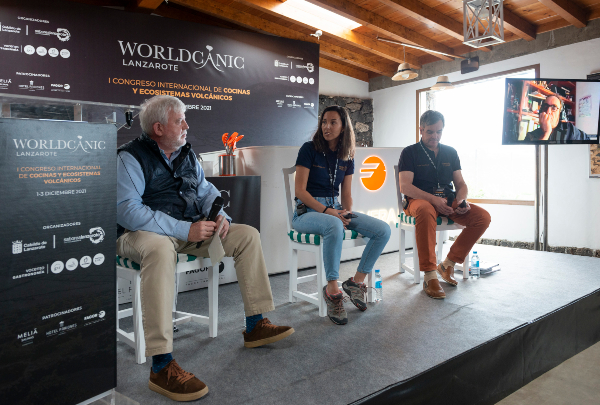
Yves Lubert, Arminda Garcia and Salvador García-Arbos, each of whom is a representative of volcanic cheeses in Auvergne, France, Lanzarote and La Garrotxa, discussed the singularity of these products with Carlos Maribona, and whether or not there is any need to protect them with a denomination of origin or a distinctive label.
In the last few days, several experts and chefs have been pointing out the differences between items that have been produced in volcanic soil and those that have not. Yesterday geologist Llorenç Planagumà told the congress that sheep and cows preferred to graze in those areas because "the grass was sweeter". It may therefore be surmised that milk from these animals will have certain characteristics which will in turn be passed on to any secondary products. Cheese, in this case.
The Catalan district of La Garrotxa appears to have retrieved a very specific cheese, with a mouldy rind and white paste made from the milk produced by "murciana" and "granadina" goats. As journalist Salvador Garcia-Arbòs explained, it emerged very recently, around 1980, and production was on a casual basis. “This cheese came to La Garrotxa, and then it disappeared, and appeared again in other places. A large number of cheese factories recently established are now launching other types of products, and the most popular is cow's cheese. Grazing pastures in volcanic areas are better, and so most of them set up there". He added a brief comment: "the best products emerging from these areas are legumes”.
Arminda García from Finca de Uga, meanwhile, said that cheese production in Lanzarote was a relatively recent business, because until recently the milk produced on the island was sent to other places where cheese was better known. Finca Uga makes some 20 cheeses - two of them have won prizes at the renowned World Cheese Awards - most of them - most of them cheese from "majorera" and Canary Island goats. “We try to maintain tradition and artisan techniques, but using modern production systems to make a different product”, she said.
Yves Lubert, head of the interprofessional committee for Maison du Cantal AOP cheeses - the most historical of the three, and one of France's oldest - defined these cheeses, declaring that they had a special composition, and also a different appearance - 45 cm in height and 45 cm in diameter - and also close ties to volcanoes. “The work dynamics of all the producers kicked off in 1942, but we didn't get the denomination until the 50s. Soldiers in the Second World War, in fact, used to ask for this cheese. We have over 50 cheeses. In the lobbies of industrialised countries it is important to put the brakes on progress and make a stand for territory, promoting our own progress and techniques".
“Is volcanic cheese better?”, asked Maribona. Arminda replied with the argument that has been wielded throughout the congress, "for those letting their animals graze around volcanic soil, it is true that the animals will definitely absorb those special characteristics of the territory. That will be passed on to the milk, and I assume to the products made with the milk too - in this case, cheese”. This was seconded by Salvador Garcia-Arbòs: “if the soils are richer, the grass is better, and if the grass is better, the animal and anything produced from it will be better too”. Lubert also agreed: “our cheese has more calcium, its defining characteristic".
The next issue to be discussed was the need for a denomination of origin to protect products. Arminda did not agree, believing "it's better for everyone to make their own cheese, give them their own personality, without drawing any common lines. But even so, we're very young, and we haven't thought about it. It would be good to have a generic name, but with no obligation to adhere to common criteria". Salvador agreed: “everyone must do what they want, without any pigeonholing. I don't know whether the Cantal cheesemakers would go for a denomination. It's a very famous area, and the name and the product are good enough to be accepted by customers. We have a very good cheese in La Garrotxa, but we would need a lot of research and a lot of investment to create a denomination. And people want to be free”. “We're not against people”, replied Yves, “some cheese factories make other types of cheese or yoghurts. What's important is to have respect for what we do in relation to what customers want to eat. We guarantee what we do”.
The need to create a denomination of origin did not come through, although it was agreed that there should be a stamp to state that the cheese originates from areas with volcanic earth. Arminda argued her point of view: “distinctions should be made because there are a lot of cheese factories which are located around volcanic soil, but their animals don't graze on that soil, and so they can't say those cheeses are volcanic. A distinctive mark should be set up”. The Frenchman disagreed: “I don't think it's necessary if it's a joint task. It will also depend on the type of product. We work with other territories, and we share knowledge. That's how we make progress, and that's much more important than a label". La Garrotxa replied that traceability was a key component in the selling process. Salvador added: “traceability is sacred. It's one thing for the cheese factory to be located on volcanic soil, and quite another for livestock to graze there. A label would give more visibility, it would be more attractive to consumers, and could increase sales. In La Garrotxa we have an umbrella called Cocina Volcánica (Volcanic Cuisine) which has done very well”.

